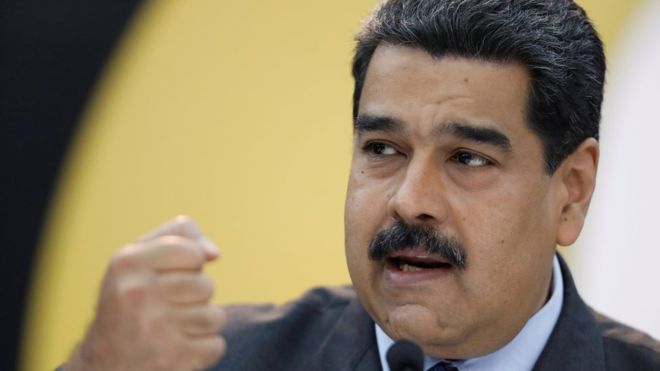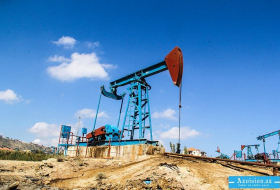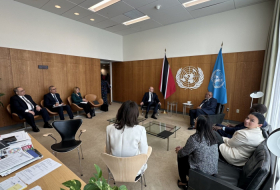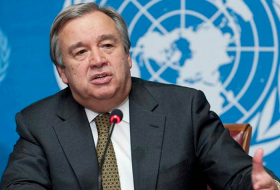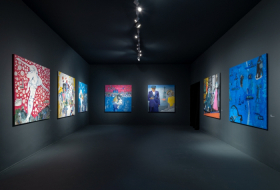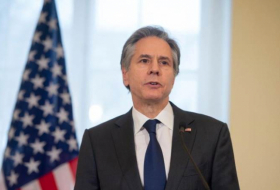But on Sunday, the Venezuelan president, Nicolás Maduro, is hoping voters will hand him a renewed six-year mandate to lead a once-wealthy South American country that experts and foes say he has helped to destroy.
“I’m ready for the battle, ready to make history,” the 55-year-old politician bellowed at his final campaign rally in Caracas on Thursday, where he was flanked by the Argentinian football star Diego Maradona and wore a pickle-coloured shirt emblazoned with the image of Hugo Chávez.
“It will be a grand victory …. that will give us a better Venezuela!” Maduro insisted.
Few question the first part of that claim.
Venezuela’s mainstream opposition – whose two most prominent figures, Leopoldo López and Henrique Capriles, are banned from running – will boycott what they call a rigged vote while Latin American neighbours, including Brazil, Colombia and Mexico, have branded the election “illegitimate”. Earlier this month, the US vice-president, Mike Pence, slammed “a fake election” that would have “a fake outcome”.
Maduro paints such criticism as the meddling of hostile foreign forces waging economic war on the “Bolivarian revolution” whose leadership he inherited after Chávez’s death in 2013.
“Who is it who gets to elect the president of Venezuela? A military coup? … The government of Colombia? …. Donald Trump?” Maduro shouted during Thursday’s event on Avenida Bolívar in downtown Caracas.
On Friday Washington imposed fresh sanctions on the powerful second in command of the Socialist party, Diosdado Cabello, accusing him of drug trafficking and heading a major corruption network that siphoned off funds from state-run companies.
The US treasury department also sanctioned Cabello’s wife Marleny Contreras, his brother José David Cabello and businessman Rafael Alfredo Sarría Díaz.
Some voters continue to back Maduro, despite the economic calamity into which Venezuela’s 34 million citizens have been plunged since his narrow election in April 2013. Last year the country’s economy shrank by more than 13%; this year hyperinflation is set to hit 13,000%.
“I’m voting for Maduro because I want the economic blockade to be lifted. Nobody else could achieve that,” said Carmen Peña, 63, a fervent chavistawho was among the crowds at his closing campaign event.
Michael Piña, a 27-year-old tour guide, agreed. “The situation is hard – I’m clear about that. But the government is still giving help to those who need it and that is why I’m going to vote for Maduro. For me he’s the only option.”
Many though believe their only option is to vote with their feet.
Tomás Páez, an expert in Venezuela’s diaspora from the Universidad Central de Venezuela in Caracas, estimated about 1.3 million of his fellow citizens had emigrated since 2015 because of the increasingly bleak economic and security situation.
“Look at me for example, I’m a university professor … and the salary I should receive is [worth] between five and seven dollars a month,” the sociologist said. “To be honest, it is inexplicable the way in which [Maduro’s government] has transformed wealth into poverty and misery.”
“If Maduro wins … and there is no sign that this won’t happen, the diaspora will keep growing and will place enormous pressure on neighbouring Latin American countries,” Páez predicted.
The man with the best chance of stopping that happening is Henri Falcón, a 56-year-old former governor and Chávez ally who some polls place ahead of Maduro but – because of doubts over the vote’s fairness – few expect to win.
In an interview earlier this week, Falcón urged voters to end Maduro’s “disastrous” rule and pledged to save the oil-rich nation from “misery, tragedy, hunger and hopelessness”. “It’s up to us now to say to Venezuela and to the world that, yes, there is a way out,” he said, promising “a government of national salvation”.
For now, the estimated 5,000 migrants streaming out of the country each day have given up on such redemption.
“Things changed radically after Chávez died. Now it is a total crisis … We are fleeing a crisis,” complained Alexis Rivas, a 41-year-old from Vargas state, after crossing into Brazil from the border town of Santa Elena de Uairén on a recent afternoon.
“If you ask me today, do I want to go back, the answer is no. Not while Maduro is in power,” the father-of-three added.
Ali Millán, another migrant taking the same exit route, scoffed at the idea Sunday’s election might bring change.
“It’s all been bought already,” the 31-year-old vented. “[Maduro] says Venezuelan is going well. From where he’s sat, maybe.”
More about: #Maduro








